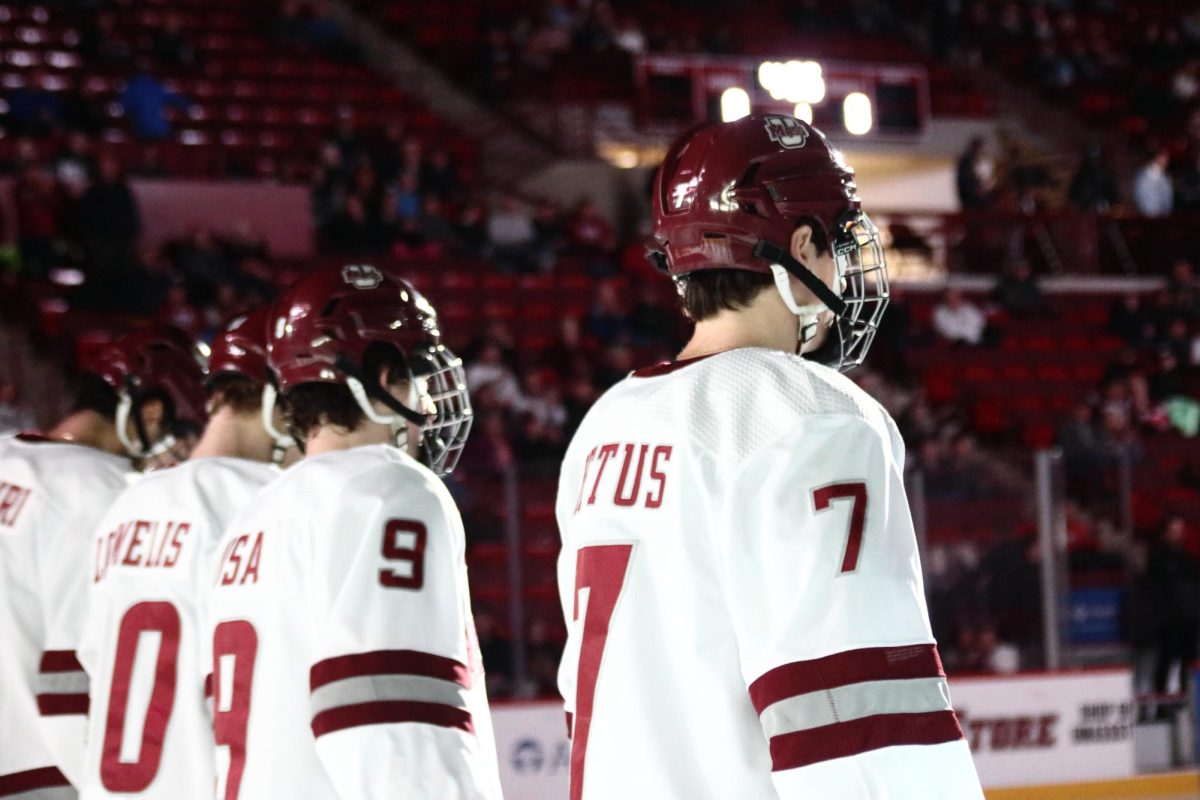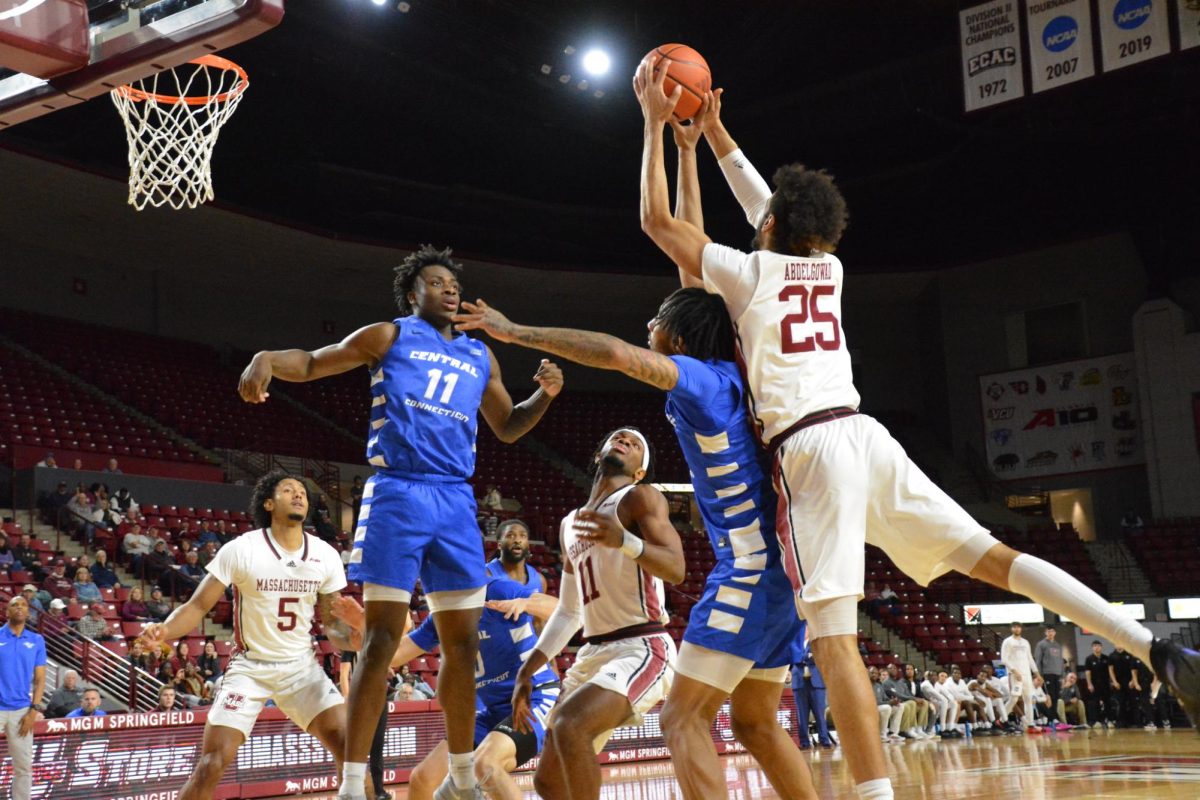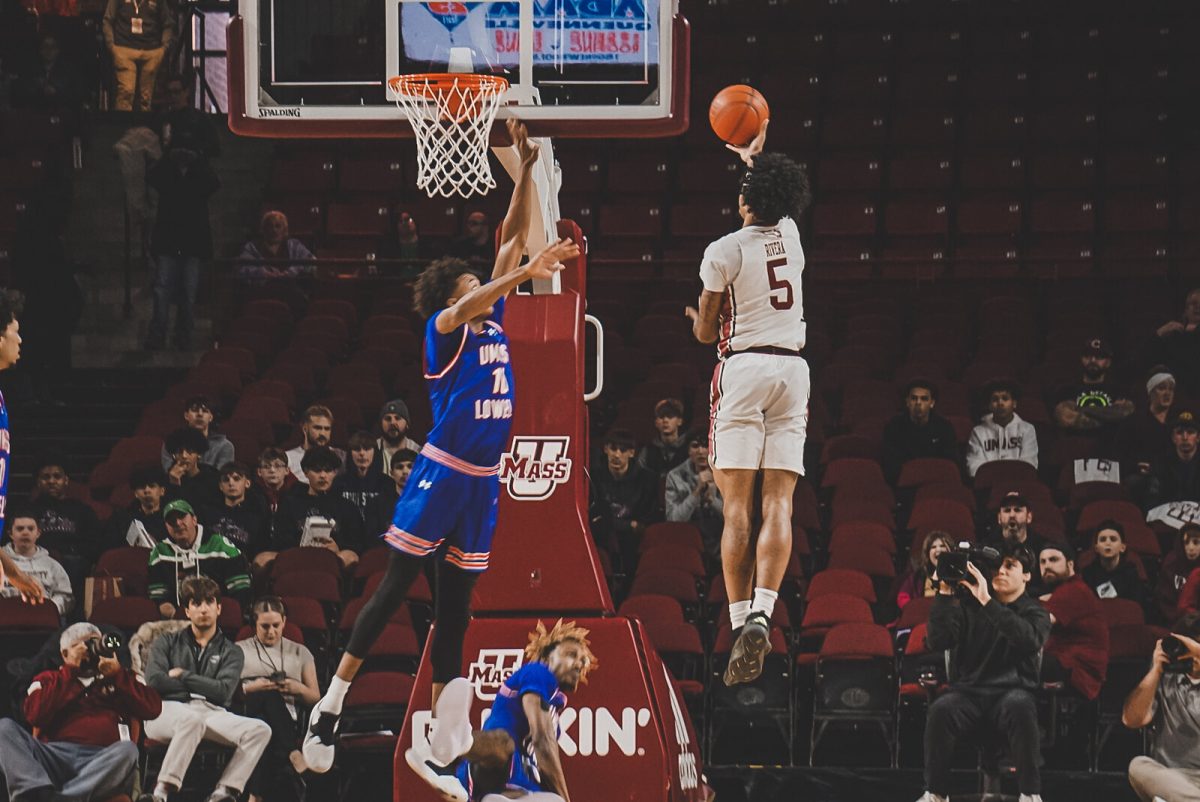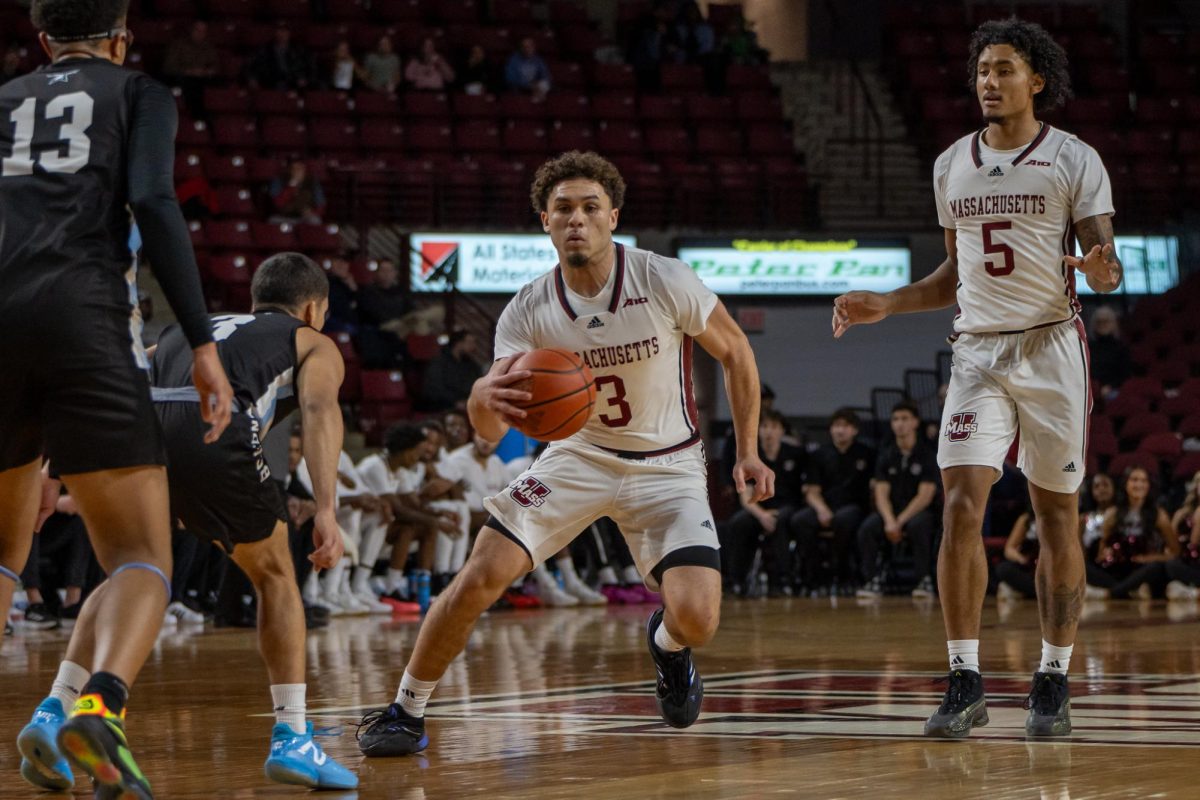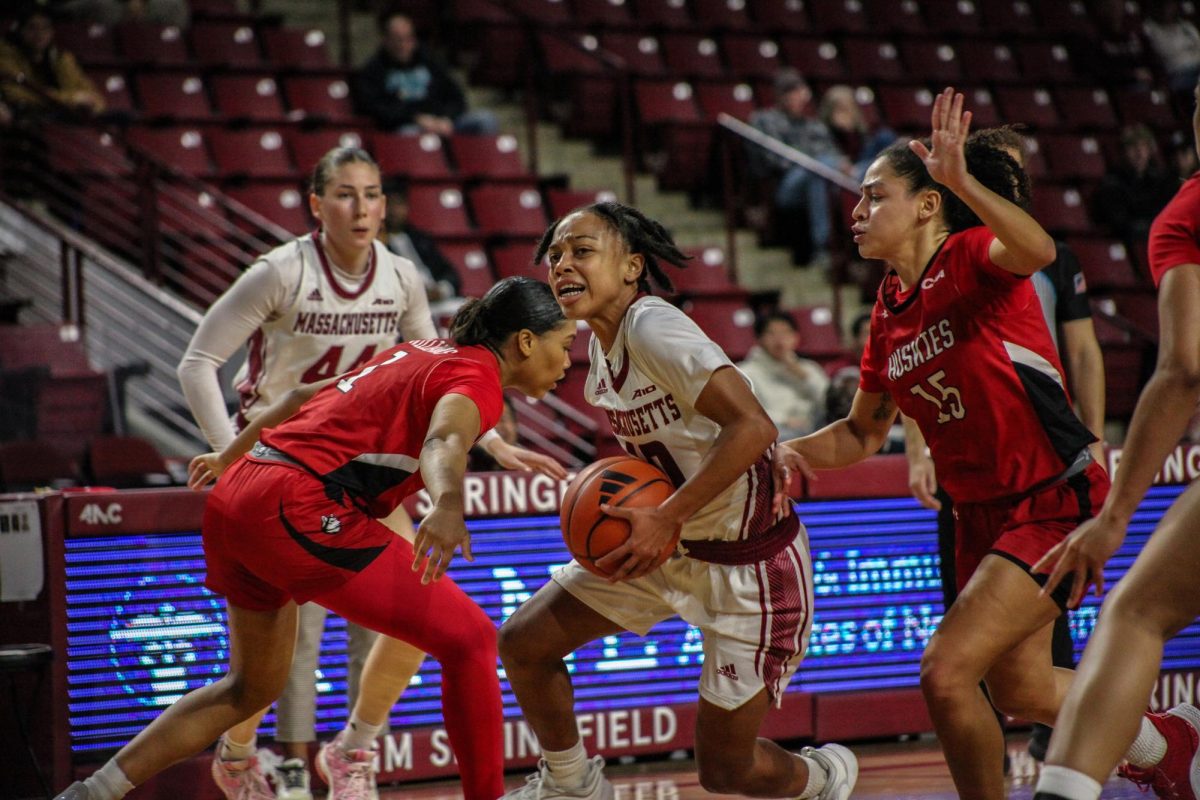By popular demand, the video of Noam Chomsky’s critique of U.S. foreign policy in Afghanistan at MIT’s Technology and Culture forum on Oct. 18 was rebroadcast for the University of Massachusetts community last night in a Van Meter lounge.
This time, two Van Meter residents, senior English major Dan Buchalter and senior Computer Engineering major Tom Manula, organized the affair. They personally financed free pizza, chocolate candies, and soda for those who attended. Orchard Hill resident and senior Neurobiology major Asif Suyani, who collaborated on the original broadcast of the video presentation for a large audience in the Campus Center Ballroom on Nov. 7, also assisted with the event.
“I caught only the tail end of the video the first time [it was broadcast],” Buchalter said. “And what I saw I thought was very interesting, and I know other people did too, so I wanted to have this event.”
Smith College student Maho Saito said that she, too, had missed the first broadcast, but that the earlier event, as well as what she had heard from friends about Chomsky, had piqued her interest. She also commented that this event had received good publicity-according to Saito, it had been featured recently on a Five College bulletin-site, www.dailyjolt.com.
“Chomsky is my hero,” said Neil Nugent, a Radical Student Union member who has been active in organizing the RSU Video Series that has been shown in the Campus Center over the past few weeks. “I think that this video offers both an explanation and a critique of US foreign policy, and it challenges the assumptions of the mass media that [Osama] bin Laden is guilty, or that it is even possible to determine who people responsible for Sept. 11 are.”
Since the first airing of the videotape at UMass, many of Chomsky’s claims about the dubious evidence against bin Laden have been taken up in the media’s continued discussion of the events of Sept. 11. Recently, Insight magazine published information on its website, www.insightmag.com, that a different suspect, Imad Fayez Mugniyeh, a Shiite Muslim from Lebanon, was being scrutinized by US intelligence with regard to his involvement in the attacks. According to the site, Mugniyeh may have been more directly responsible than bin Laden for planning the attacks on New York and Washington.
Chomsky himself remains controversial, even as emotions with regard to Sept. 11 on and off campus begin to cool slightly. Buchalter alleged that housing staff in Van Meter and in the Central cluster had discouraged his organization of the event in his dorm. He cited several instances of paperwork and requests for funding somehow lost in the shuffle, as well as direct discouragement from officials about the feasibility of planning event.
“My RD told me that vendors would never agree to give me a bill of sale and be paid later if they delivered pizza and sodas to the dorm for the event,” Buchalter said. “But when I called Bruno’s Pizza, not only did they agree, but they also gave me the number of other restaurants who would deliver more food if we wanted it.
“The RD and ARD’s stories kept changing,” Buchalter claimed. “The ARD seemed to take especial delight in telling me, ‘no, you can’t have this event’. [But] Noam Chomsky has been censored in other ways and who knows if this was one of them.”
Since the speech, however, several of the predictions Chomsky made in the Oct. 18 video have proved false as military action takes its course on the other side of the globe. Among such predictions is Chomsky’s warning on the video that U.S. bombing in Afghanistan would threaten humanitarian aid to citizens of the country, resulting in “the silent genocide,” by starvation, of 3 to 4 million people.
“According to Oxfam’s website, their director is ‘cautiously optimistic,’ that a humanitarian crisis will be averted,” said Hieu Nguyen, Assistant Residence Director of Van Meter/Butterfield.
According to Manula, thought it could be argued that Chomsky’s presentation was outdated, voices like his have been a rarity since Sept. 11, which is why his speech at MIT has been circulated so heavily.
“The ideas he presents still haven’t gotten a lot of emphasis in American media and the more people we can get this out to the better,” Manula said. “Even if they don’t agree with it, it’s something they should still be aware of.”
Suyani said he agreed. “That’s how activism spreads,” he said.
Nguyen pointed out that the aversion of a humanitarian crisis in Afghanistan still does not exonerate U.S. foreign policy in his mind. Nguyen said he felt that the U.S. should have used other alternatives in bringing the perpetrators of the Sept. 11 attacks to justice, including use of the World Court.
“The Taliban offered to exchange bin Laden for evidence, but the U.S. wouldn’t do that,” he said. “They just bombed.”

